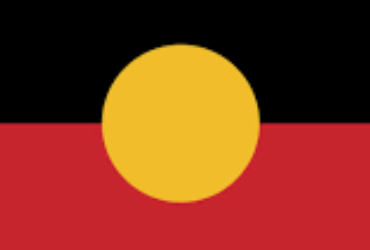
Aged care providers don't understand needs of Stolen Generations survivors with dementia
[by Kelvin Bissett]

KBH survivors, descendants and family members gathered recently for the KHBAC Walking Together program. Image: supplied
Stolen Generations Survivors, some now in their elder years with dementia, should have a life story poster with pictures on display in their rooms in residential aged care homes to keep reminding staff of their past trauma, say leading experts.
Dr Tiffany McComsey and Harpreet Kalsi-Smith, both with the Kinchela Boys Home Aboriginal Corporation, will present at the International Dementia Conference in September what aged care providers should do to support Stolen Generations Survivors with their background of physical, emotional, psychological, cultural and sexual abuse.
There are 17,000 First Nations people who are Stolen Generations Survivors who are now all
aged 50 and over and many now frail with age. Aboriginal and Torres Strait Islander people are three to five times more likely to develop dementia.
Dr McComsey said: “We are concerned that many aged care providers and many dementia care spaces don’t actually understand this trauma and what it means for Stolen Generations survivors and their experience of dementia.”
One innovation for aged care homes that the women would recommend is that every Stolen Generation survivor have their own life story poster to have with them to display in aged care settings.
Ms Kalsi-Smith said the power of life story work is well documented as people living with dementia often have problems with communication and memory that make it difficult to express who they are and what matters to them.
“Creating a life story is a useful way to record important information about Stolen Generations Survivors and help others understand and relate to them in a supportive way,” she said.
The poster provides an overview of the person, what their likes and dislikes are and things that can support in de-escalating tensions should they arise
Importantly, the posters need to be created with Stolen Generations Survivors and with people they know and trust and ideally be used in an environment that is trauma informed and with people who have a deep relationship with the survivors and descendants.
The Kinchela Aboriginal Boys Training Home, located near Kempsey on the NSW Mid North Coast, was a place established for First Nations boys forcibly removed from their families.
The uncles grew up identified by numbers, not their names. Their heads shaved, forbidden from speaking their own languages and endured de-programming to assimilate into white Australia.
Of the 600 boys, now called uncles, who lived at Kinchela, 50 are alive today with a reunion event taking place in October (18th – 20th) planned to mark the home’s opening 100 years ago. At least seven of the Kinchela uncles are living with dementia with support from the Corporation.
As well as the life story poster concept, she said other measures that aged care providers should consider is training about the Stolen Generations legacy and participation in a truth telling process with a Stolen Generations Survivor. Aged care workers should be trained in trauma-informed care.
Ms Kalsi-Smith said Stolen Generations Survivors living with dementia are generally uncomfortable, or even terrified, by the idea of being moved into an aged care home. They feared they would once again be living in a place following someone else’s rules.
She said there was a vision for the Kinchela property to one day offer residential aged care that meets the special needs of the Kinchela uncles.
Uncle Colin Davis, 76, a Kinchela Survivor who was recently diagnosed with dementia, has signed a request asking never to go to an aged care home.
His wife of 53 years, Aunty Rita Davis, said the aged care options available on the NSW South Coast near their home would not meet his needs. She felt the white people running the services lacked the empathy required to understand Uncle Colin’s background.
“For him it would be like the restrictions he had growing up all over again. Once you put restrictions on him you never know what he’ll do,” Aunty Rita said. “He does it how he does it.”
Dementia Support Australia, which has helped 50,000 people since 2016 with tailored support, ensures its workforce is provided with annual cultural awareness and trauma-informed care training to meet the needs of groups like Stolen Generations Survivors.
DSA Head of Professional Services Marie Alford said all aged care services should ensure their staff understand what triggers Behavioural and Psychological Symptoms of Dementia in a Stolen Generations survivor and ways to safely de-escalate.
The biennial International Dementia Conference is being held at the Sydney Hilton on September 5-6. IDC2024 is being run by The Dementia Centre, which over almost 30 years has provided research, consultancy and education in dementia care.
LATEST NEWS

Shine On Gimuy Festival to illuminate Cairns Esplanade with spectacular light and art [supplied by Pip Miller] Lighting up the Gimuy Boulevard along Cairns Esplanade from Thursday 3 to Sunday 13 October, 2024, the second annual Shine On Gimuy festival will illuminate the city’s waterfront in a dazzling display of light installations, art sculptures, animations, and soundscapes.

NT police commissioner promises 'cultural reform', after Aboriginal police officers lodge human rights complaint [Lillian Rangiah and Samantha Dick, ABC] Lawyers have lodged a human rights complaint against the NT government and Police Commissioner Michael Murphy on behalf of three serving Aboriginal police officers.

Yarrabah residents plead for action on overcrowding in Indigenous community's housing [Conor Byrne and Holly Richardson, ABC] Ms Fourmile lives in Queensland's largest Indigenous community, on the lands of the Gunggandji and Yidinji people, where overcrowding is chronic.




.png)

.png)